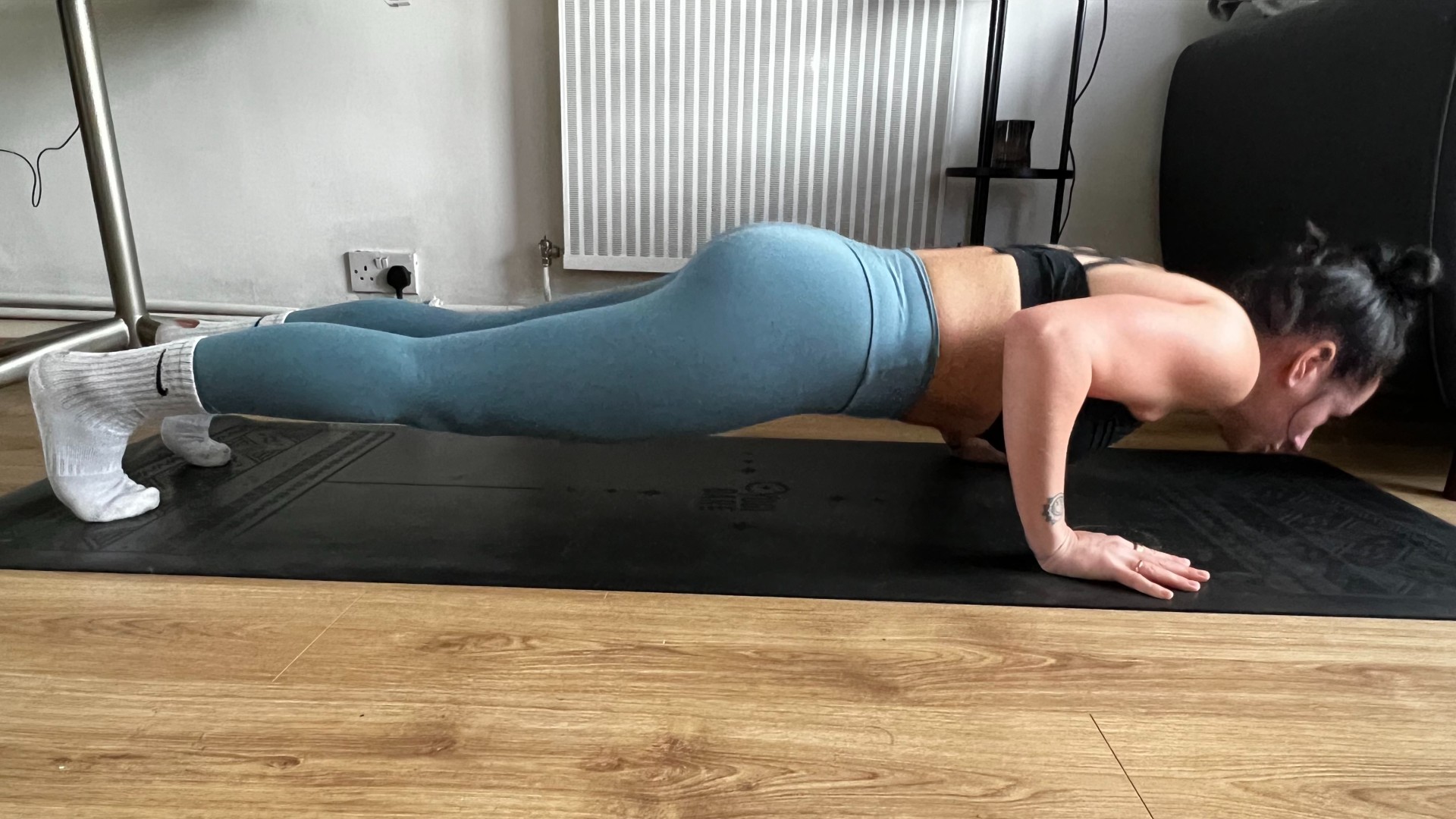
There are few CrossFit WODs (that means workouts of the day) that test physical and mental fitness the way a Murph challenge or Murph workout (as it’s also known) does. The full-body beasting takes place every Memorial Day. This year, it falls on Monday, May 29.
If you’re unfamiliar with the Murph workout, it was named after Navy Lieutenant Michael Murphy, who was killed in Afghanistan in 2005, and has been used by the Navy SEALs for years. Many CrossFit gyms host ‘hero workouts’ — far more intense WODs than your average class — and the Murph WOD is one such workout.
Each year on Memorial Day, CrossFitters and keen exercisers worldwide take on the Murph without fail, in Murphy’s honor. Check out the 5 best CrossFit workouts for beginners, or read on for what happened when I took on the Memorial Day Murph.
What is the Murph workout?
If you’re new to the challenge, we don’t recommend trying a Murph workout straight off the bat, and you can find plenty of Murph training plans to follow if you do decide to tackle one.
We dive into the Murph workout and how you can modify it here. But here’s a lowdown on the Memorial Day Murph workout.
Murph can be done with or without a weighted vest. If you’re a beginner, there are ways to modify each exercise, but the number of reps might still be too much. Try sharing reps with a partner on a you-go-I-go basis, and take your time. If you experience pain, stop immediately and speak to your physician.
@dougiedoge ♬ Military - Florews
I just did the CrossFit Memorial Day Murph workout — here are my results
Here’s how it went down.
1-mile run
One of my first-ever CrossFit classes was a Murph WOD, so I was interested to see what had changed a year later. Always grueling, it turns out.
I completed the Murph workout without a weighted vest and set off on my one-mile run, which I took at an even and steady pace to conserve much-needed energy. There’s a handy park near my CrossFit gym measuring the same distance I needed to run, which helped me keep an eye on my pace.
I felt good after one mile and ready to take on some strength exercises. I recommend using one of the best fitness trackers to measure your distance, heart rate and other metrics, which is helpful if you ever plan to take on Murph again.
100 pull-ups
Pull-ups are (one of) my least favorite exercises and one that I have to modify no matter how much I practice. I grabbed one of the best resistance bands for strength training, wrapped it around the bar, and stepped through the loop for an assisted pull-up variation.
100 reps are brutal however you tackle them, but I chose 10 sets of 10 reps with a rest between. Washing my hair afterward was a challenge in itself, and I fear it’ll be worse for a few days after.
200 push-ups

I’m proud of my push-up game but for 200 reps? I’m down on my knees, thanks. I chipped away at these and took my time, aiming for 15-20 reps a set. I started every new round without knees, then dropped to protect my form whenever I felt it slip or could no longer get my chest close to the floor.
I haven’t felt my upper body tremble like that in a while and had to take a few downward dogs and child’s pose positions along the way to give my shoulders respite.
By the 200th rep, my triceps were battered, and I was relieved that my upper body could get some rest. If you struggle with push-ups, focus on moving your hips and chest as a solid unit to prevent dipping into your lower back. If you need to scale up this exercise, a resistance band around your shoulders could do the trick — good luck!
300 air squats
Arguably the worst transition — burning out your legs with 300 squats before a one-mile run. You bet the SEALs knew what they were doing. Many people sacrifice the depth of the squat to make up speed on this exercise, so it’s crucial to ensure thighs are parallel to the floor.
I tackled these reps in one go, fearing I wouldn’t start again if I stopped. I strangely found these bearable until I hit around 150 reps — then the burn set in. If you’re tempted to add some flare and squat jump through this one, I urge you to reconsider, as it will catch you up. Finally, I’m thankful I live in a first-floor apartment with few stairs to navigate.
Remember to keep your core engaged during every rep, unless you want to feel it in your lower back for days after.
1-mile run
With the end in sight, I increased my pace with a set of heavy and fatigued legs. This is called compromised running, a key component of Hyrox competitions; by sandwiching body weight strength compound exercises between runs, you can build muscular endurance and strength (and blitz calories) by training the body to push through in a compromised state. Those training for a marathon will be more than familiar with this state.
This time I pushed an all-out effort, sprinting the last 200 meters with the vigor of someone who’d just heard the call for happy hour.
Verdict
I love the feeling after completing a Murph workout despite the extra few seconds it takes to stand up and the buckets of sweat I’ve left behind in the gym.
The Murph challenge is just that — a challenge to your mental and physical resilience. You don’t have to be an athlete to do Murph WODs, but some practice will keep you safe. It’s a test of endurance, cardiovascular fitness and strength, using nothing more than your body weight and a desire to push through when it becomes uncomfortable.
I finished in 46 minutes, but I did modify pull-ups. You can find the WODprep Murph finishing times here, but a ‘good’ time for an average gym athlete falls between 35-50 minutes without a vest and 45-60 minutes with one.







